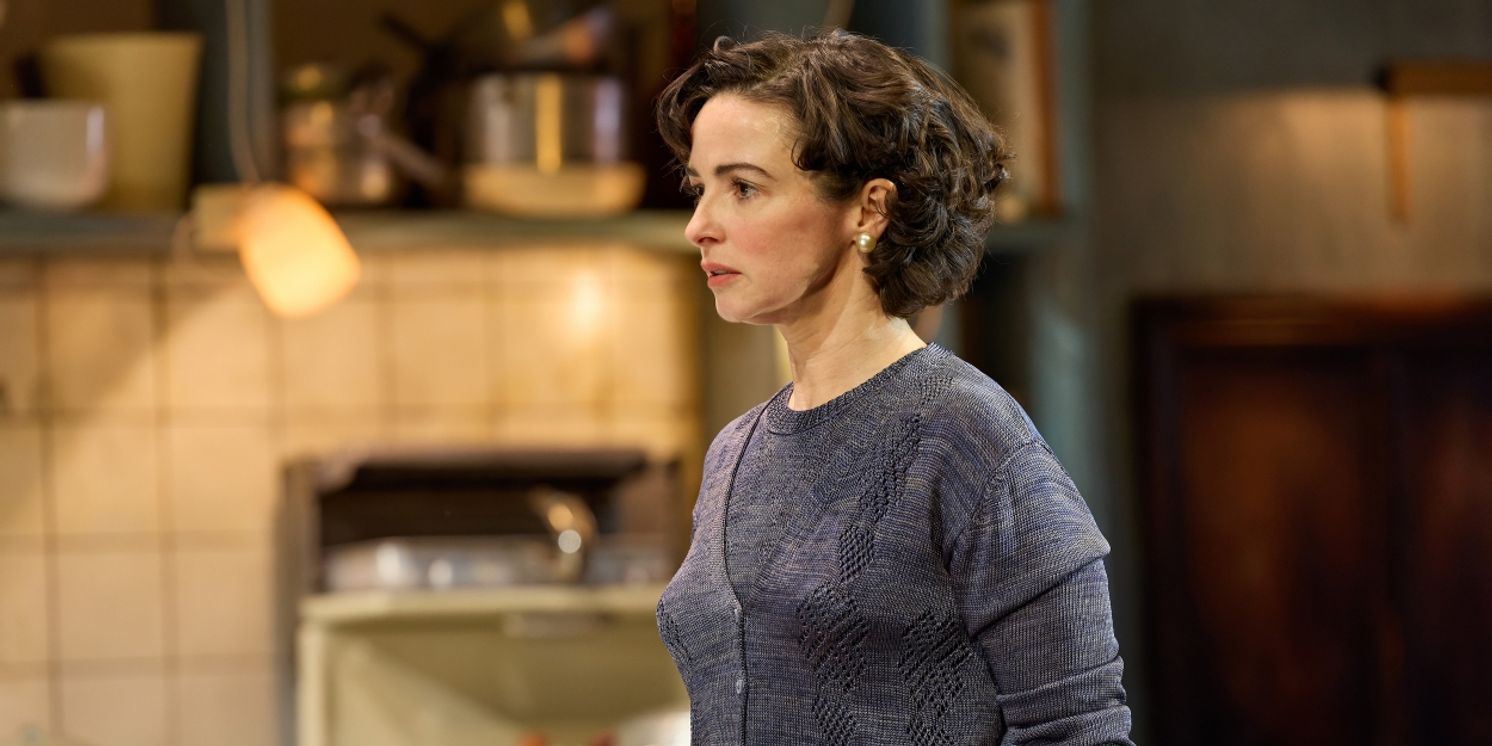Review: THE HILLS OF CALIFORNIA, Harold Pinter Theatre
A melancholy meditation on memory.

![]()
Death comes to us all and the spectre of the end of life often brings families together who may not have met for years, even decades. Jez Butterworth’s bittersweet and bitingly funny new play, The Hills of California, draws both on this and how events are shaped by memory and by who remembers them.
For a title referencing California, it may be a surprise to find yourself in 1976 Blackpool during the summer heatwave. Veronica lays dying upstairs in her ramshackle guest house, while her daughters gather below. There are four of them, but only three appear; nervous Jill, anxiety-striken Ruby and brashly loud Gloria. They are there to see their mother, but more to dissect their childhood. Eldest child Joan, who is also the supposed favourite, is absent and has not been seen for 20 years.
%20-%20Photo%20by%20Mark%20Douet.jpg?format=auto&width=1400)
We shift back to the same house in the mid-fifties where Veronica is ruthlessly moulding the girls into a new singing troupe, in the vein of the Andrews Sisters. Their father is absent and Veronica is dreaming of a life beyond the boundaries of Blackpool. However, Elvis has arrived and Veronica is pushing her children towards a world that has already moved on. When a big-shot American agent comes calling, Veronica makes a snap decision that has repercussions that continue to resonate as she lays dying.
This is a play very much based on the female experience, with men as little more than caricatures at the periphery. There are some fine performances here. Laura Donnelly, Butterworth’s long-term collaborator and partner, gives a tight and rigid performance as Veronica, brittle as she hides her desperation to remain in control.
Helena Wilson is the faithful, timid and dutiful Jill who has never left the guest house or her mother. Ophelia Lovibond oozes disappointment at her life and marriage as Ruby and Leanne Best rages as the bitterly angry Gloria. The actors beautifully convey a fractured family on the verge of deep grief.
As the production switches to the past, newcomer Lara McDonnell is wonderful as younger Joan, more knowing and worldly-wise than her sisters. Nancy Allsop, Sophia Ally and Nicola Turner also impress as the other siblings.
There’s lots to enjoy here; Butterworth’s poetic verbosity is in full evidence, along with savage humour, painful pathos and simmering rage. There is sharp criticism of motherhood, in many forms, with more than a few nods to Gypsy's Mama Rose in Veronica’s behaviour, her ambition blinding her to the severity of the consequences of her actions.
There is some brilliant and starkly drawn storytelling, but the third act doesn’t quite live up to the build-up of Joan’s story in the previous acts. The expected gut punch never quite comes. Director Sam Mendes delicately reflects the distance between the siblings, made all the more obvious by the distance between them on the stage.
There is also some bagginess in the script that could be tightened; Mendes paces the production well but can’t avoid the all the drag. The script needs every word to count to justify the run of three hours and it does not always deliver.
The production looks magnificent. Rob Howell’s wonderfully atmospheric set absorbs us in the faded, frayed interior of the guest house with its oddly placed tiki bar, ever-winding staircases and a broken jukebox in the corner. You can almost smell the sea air and creeking dampness in the walls.
For most theatre-goers, Jez Butterworth’s work will always live in the shadow of Jerusalem. The Hills of California is no exception, which is a shame as it is close to greatness. It is thought-provoking, heartbreaking and multi-layered, but it could be exceptional.
The Hills of California is at the Harold Pinter Theatre until 15 June
Photo Credits: Marc Douet
Reader Reviews
Powered by
|
Videos


%20Nicola%20Turner%2C%20Nancy%20Allsop%2C%20Lara%20McDonnell%2C%20Sophia%20Ally%20-%20The%20Hills%20of%20California%20(Harold%20Pinter%20Theatre)%20-%20Photo%20by%20Mark%20Douet.jpg?format=auto&width=1400)